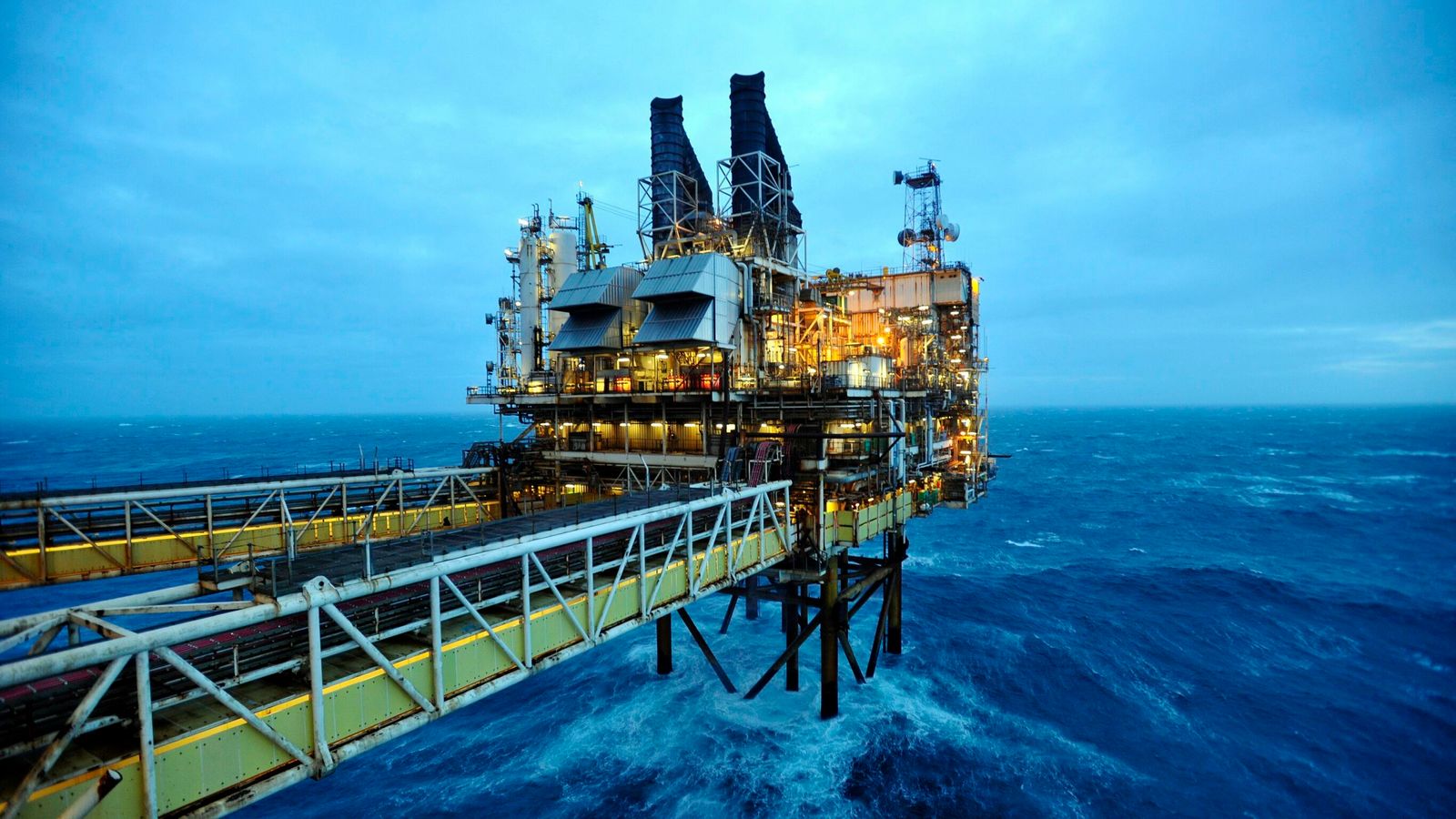The UK government’s decision to grant oil giant BP a permit to drill for oil in the North Sea will be challenged in court today.
Lawyers from Greenpeace will argue that the government failed to properly take climate impacts into account when it gave a final permit for drilling to begin in the Vorlich field in 2018.
It is the first time that an offshore permit has ever been challenged in court and it comes just weeks before the UK government hosts the crucial climate change summit in Glasgow known as COP26.
The case is the latest escalation in a growing row over the government’s policy of allowing new extraction of fossil fuels in the North Sea, symbolised by the controversial Cambo oil field which is due to receive final approval for extraction to begin.
Both the International Energy Agency and the UN have recently warned that there can be no new oil and gas developments if the world is to hit emissions targets.
The government says that current and future North Sea extraction is already factored into its plan to get to net zero carbon emissions by 2050.
This calculation includes production emissions and emissions from the burning of fossil fuels consumed in the UK but does not include emissions from UK oil and gas that is exported and burned overseas.
Head of oil and gas transition at Greenpeace UK, Mel Evans, said: “It’s outrageous that the UK government routinely rubber stamps oil permits – like this one and the proposed permit for Cambo – while completely ignoring the climate impact, which causes extreme weather and deaths.
“We hope the judge will agree that legally this cannot be allowed to happen. It makes no sense for the government to overlook the most harmful consequences of oil and gas when making these decisions.
“We are two months away from hosting global climate talks, and we’re at code red for humanity. BP’s permit must be revoked, and Cambo must be stopped.
“By setting a clear path to phase down oil and gas the UK government must then properly support workers and communities through the energy transition.”
The court case comes as the lobbying group for the North Sea oil and gas industry has warned that UK imports of foreign gas had increased significantly during winter 2021 compared to the same period the year before.
Oil and Gas UK said that according to government figures, the UK had to import 56% of the gas it needed for heat and power between January and March of this year, an 8% increase from 2020.
Gas imports usually increase during the winter months but in this case the demand rose during COVID-19 restrictions at the same time as gas output from the North Sea fell as part of a long term decline.
Oil and Gas UK Chief Executive, Deirdre Michie, said: “Oil and gas provided nearly three-quarters of the UK’s total energy last year, and we will continue to rely on them to heat our homes, keep our lights on and create many of our everyday essentials from medicines to mobile phones to road surfaces. About 85% of UK homes are still heated by gas but imported gas hit a record high last year.”
The report argues that the figures emphasise the need to “invest in new oil and gas developments to ensure security of supply and underpin a strong domestic industry to build the low-carbon energy ecosystem of the future”.
“We all know that change is needed so the question is how fast we make that change. This report shows the reality that cutting off the domestic production of oil and gas faster than we can reduce demand risks leaving us increasingly dependent on other countries that often generate higher emissions.”
Please use Chrome browser for a more accessible video player
Campaigners insist there can be no justification for investing in new developments and that doing so is incompatible with Paris climate agreement commitments.
The government has not yet published its long awaited and potentially controversial heat and buildings strategy, which is expected to detail how the UK is going to transition away from using the gas boilers that currently provide heat and hot water to around 23 million homes.
Environmental lawyer and founder of campaign group Uplift Tess Khan told Sky News: “OGUK rightly identifies the problem we have in the UK, which is our reliance on oil and gas, particularly when other countries are moving ahead with cleaner ways of heating homes and powering cars, but it offers no credible plan for reducing emissions.
“But why look for answers from an industry that wants to profit from extracting oil for as long as possible? That is why the UK government must step in and halt new oil and gas developments while going all in on shifting consumption to cleaner alternatives.”
Subscribe to ClimateCast on Spotify, Apple Podcasts, or Spreaker
Research group Energy and Climate Intelligence Unit analyst Jess Ralston said: “Experts can’t be clearer that continued UK fossil fuel exploration doesn’t add up. The economic case is failing as renewables continue to get cheaper, a trend multiplied by gas prices tripling in the last year as we continue to rely on the geopolitical whims of leaders such as Russia’s Putin.”
Sky News has launched the first daily prime time news show dedicated to climate change.
The Daily Climate Show is broadcast at 6.30pm and 9.30pm Monday to Friday on Sky News, the Sky News website and app, on YouTube and Twitter.
Hosted by Anna Jones, it follows Sky News correspondents as they investigate how global warming is changing our landscape and how we all live our lives.
The show also highlights solutions to the crisis and how small changes can make a big difference.






















